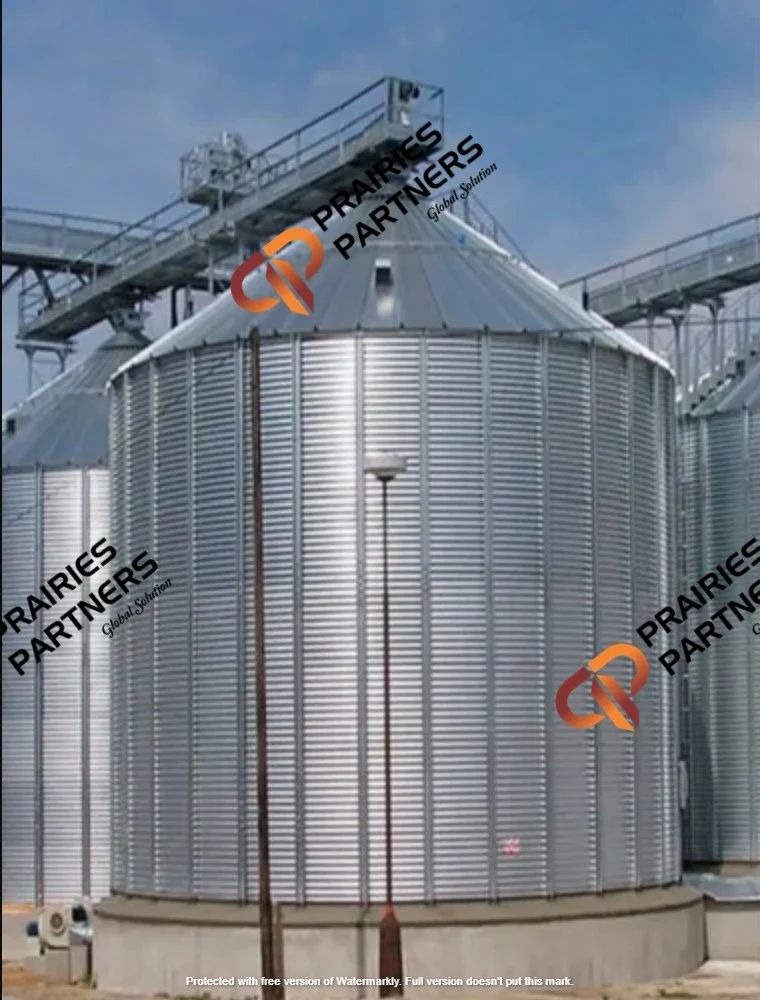Soya Silo Manufacturers
A soya silo, also known as a soybean silo, is a specialized storage facility designed specifically for storing harvested soybeans. These silos are typically cylindrical structures made from durable materials such as galvanized steel or concrete, ensuring strength and protection against environmental elements. Soya silos are strategically located on farms or near processing facilities to facilitate efficient storage and transportation logistics. They are equipped with ventilation systems and temperature monitoring devices to maintain optimal storage conditions, including controlling humidity levels to prevent mold growth and insect infestations. Modern soya silos may also feature automation for filling, emptying, and monitoring grain levels, enhancing operational efficiency and reducing labor costs.

Key Features of Soya Silos:
Durability: Constructed from robust materials to withstand outdoor conditions and protect soybeans from moisture and pests.
Ventilation Systems: Ensures proper airflow to regulate temperature and humidity inside the silo, crucial for preserving soybean quality.
Temperature and Humidity Control: Sensors and monitoring systems detect variations and allow for timely adjustments to prevent spoilage.
Capacity Options: Available in various sizes and capacities to accommodate different volumes of harvested soybeans, catering to both small-scale and large-scale farming operations.
Pest Management: Sealed design and integrated pest control measures prevent insects and rodents from contaminating stored soybeans.
Safety and Accessibility: Designed with safety features for secure loading, unloading, and maintenance activities, ensuring smooth operations and worker safety.
Soya silos are integral to the soybean supply chain, providing farmers and processors with reliable storage solutions that preserve soybean quality from harvest through to market. By maintaining the nutritional integrity of soybeans and minimizing losses, these silos support sustainable agriculture practices and contribute to the economic success of soybean production worldwide. They play a crucial role in ensuring a steady supply of soybeans for food processing, animal feed, and other industrial applications, thereby enhancing food security and meeting global demand for soy-based products.
